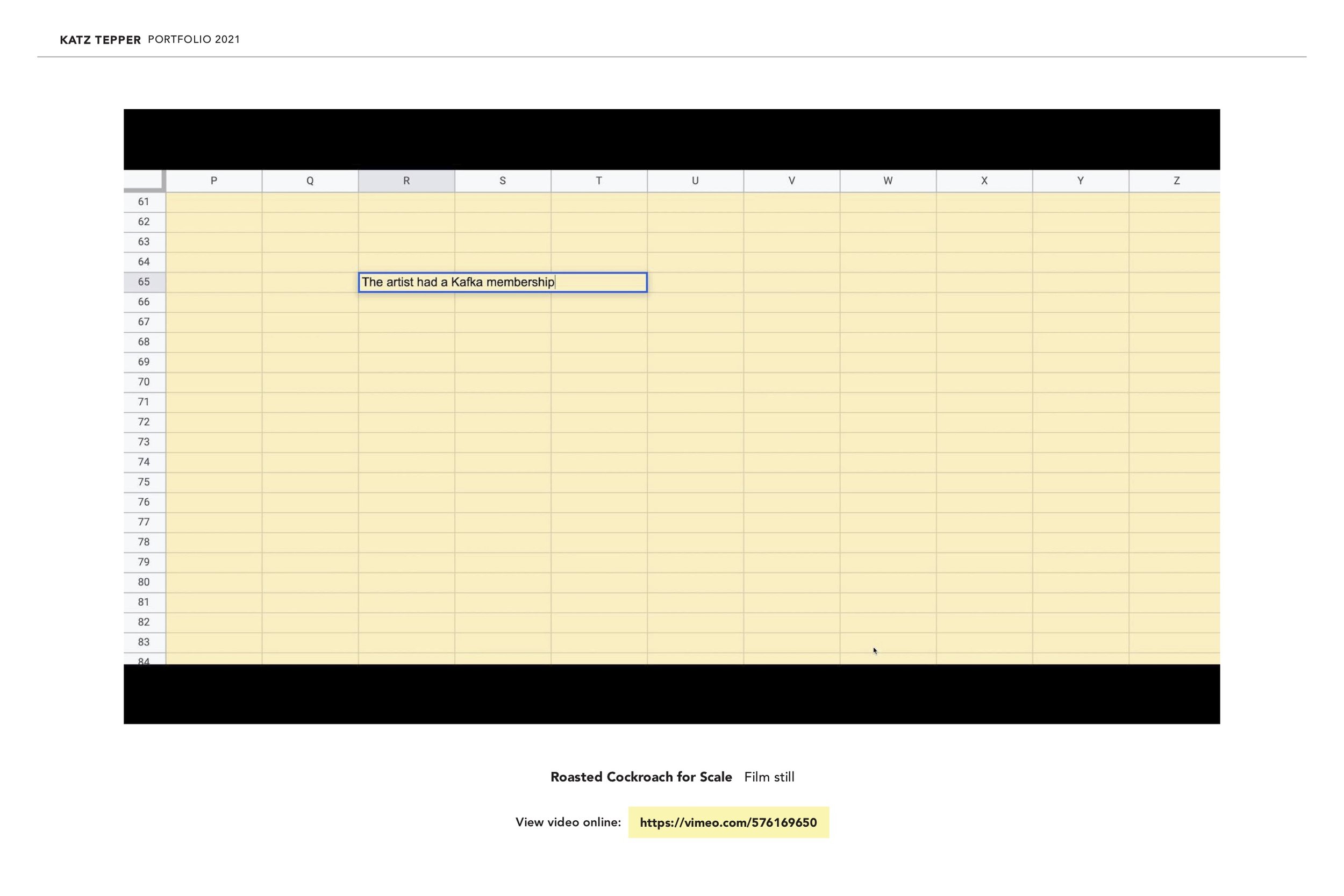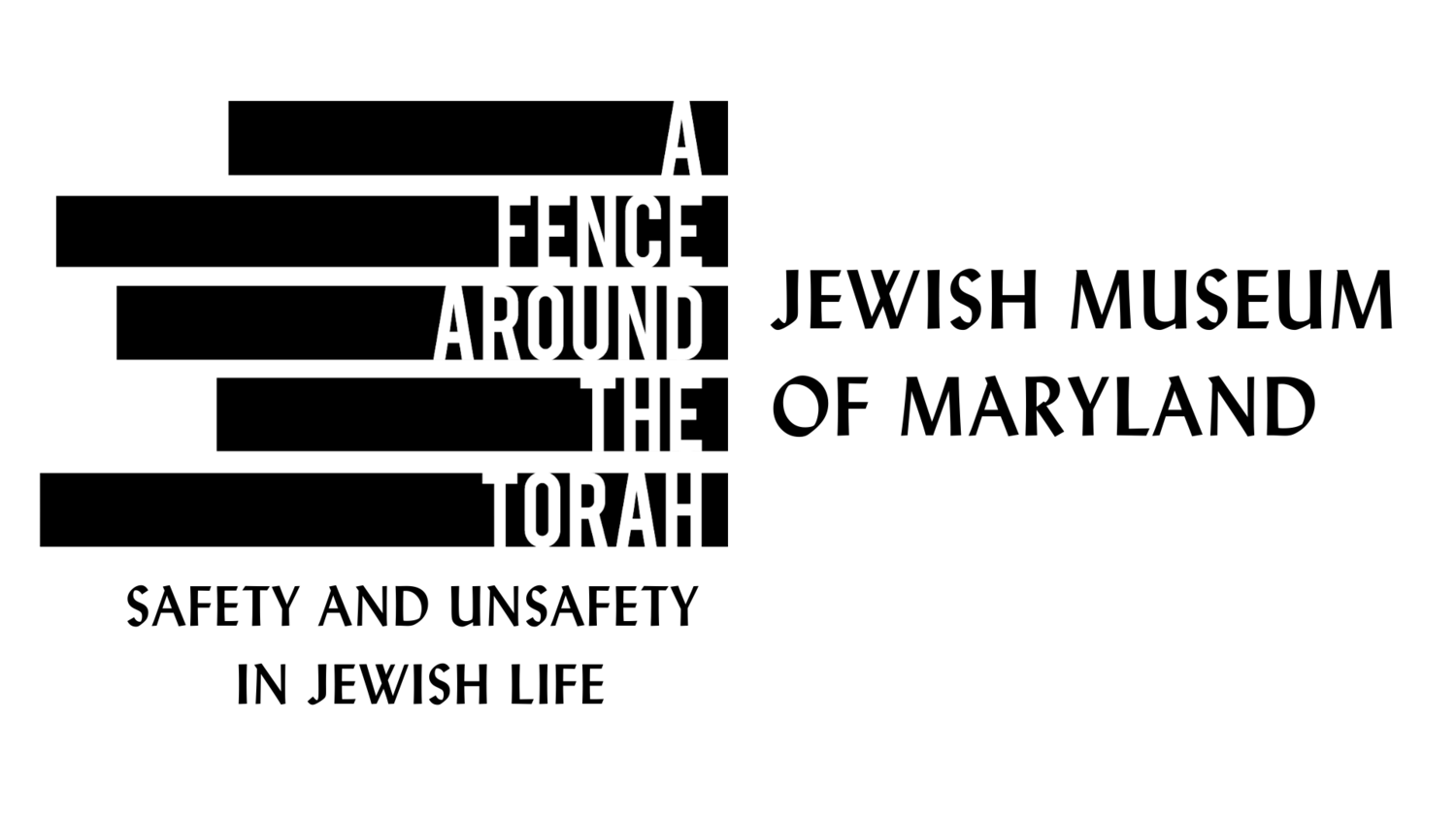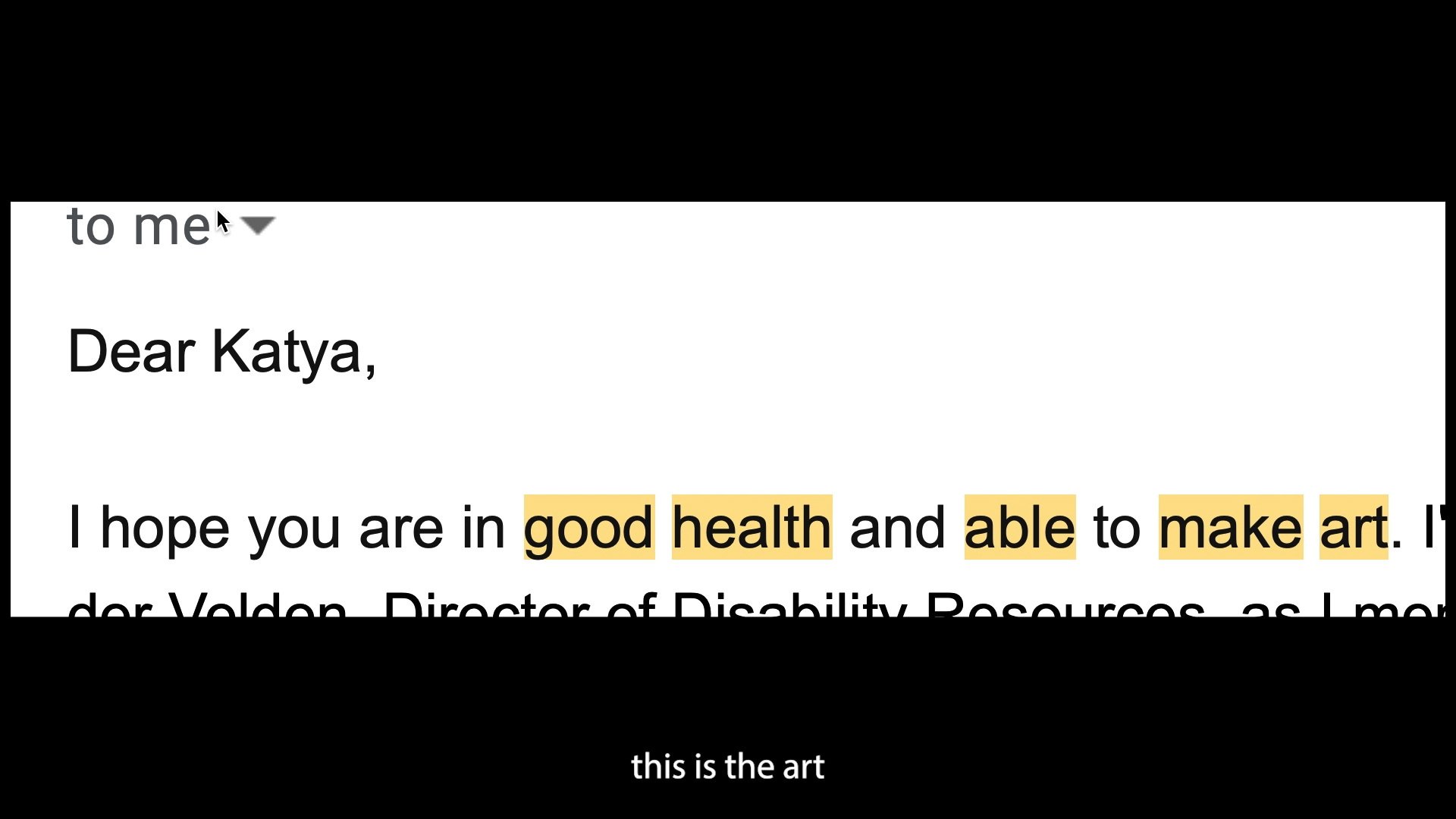
Katz TeppeR
Katz Tepper, Still from Roasted Cockroach For Scale, Digital video with color and sound, 2021
Curatorial statement by Maia Ipp
Early in Katz Tepper’s film Roasted Cockroach for Scale, the artist’s father reads/says “If it [the artwork] feels disjointed, it is because the artist believes this is a feeling worth imposing on people who might not otherwise feel it.” And so we are oriented to the intentional disorientation of this piece, which I found enticingly thought-provoking, funny, moving, and, at times, productively uncomfortable. Through form and content, Tepper engages questions of security and precarity: of the body, of collective and personal inheritances, of means of knowing. Using ostensibly limited visual material (screen recordings, zoom exchanges), a whole history and cosmology—specific to this artist and immensely relatable—comes alive. Without ever saying the words Holocaust or Zionism, Tepper’s film invokes both. Many things have stayed with me from this film, not least of which is the artist’s warmth and spirit of generosity, which remain undiminished by the difficult questions they pose throughout the work.
Artist statement by Katz Tepper
Katz Tepper, Still from Roasted Cockroach For Scale, Digital video with color and sound, 2021
Roasted Cockroach for Scale expands an intergenerational experience of disability, epigenetic illness, and ableism into a social practice-turned-film project made with my Jewish-Polish-Ukrainian-Israeli-American father, Haim. Addressing the links between inheritance, illness, trauma, displacement, militarism, and ableism in the particular Jewish context of cyclical nation-state violence, my film seeks to reckon with the lasting impacts of our heritage, probing how trauma and the political systems that cause it have become internalized, in big and small ways.
Katz Tepper, Still from Roasted Cockroach For Scale, Digital video with color and sound, 2021
Thinking through safety, I propose that a prolonged artistic exchange in the context of biological family offers a modality toward healing. In the nine month process of meeting regularly on Zoom with my father to produce this piece, in which our activities ranged from reading a script to translating a family memoir to describing a page from my symptoms journal, we both underwent transformations. Notably, Haim became versed in my experience of illness and the structural ways ableism impacts my exclusion in society, including but not limited to Jewish spaces. By the last scene in the video, he is advocating for accessibility.
Katz Tepper, Still from Roasted Cockroach For Scale, Digital video with color and sound, 2021
Formally, Roasted Cockroach for Scale maintains an antagonistic relationship to visuality. Consisting entirely of screen recordings of my desktop and employing the corporate/surveillance aesthetics we rely on to communicate across distance (Google, Zoom, Otter.ia), the textual record of describing, transcribing, translating, transliterating, scripting, editing, redacting, and word-searching constitutes the majority of the visual experience. This is an artwork in many ways about things that we can’t touch and can’t see – things that are lost or otherwise inaccessible, because they have been distanced or violently displaced, confiscated, censored, privatized, or eliminated, or because their very nature is invisible. I mean this broadly, from systems of power to genetic codes. By using words as images, I am positing that linguistic description and storytelling unsettle certain ideas of image-making. This is a nod to the enduring Jewish textual tradition and its relationship to loss and diaspora.




